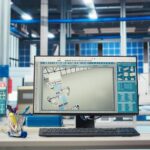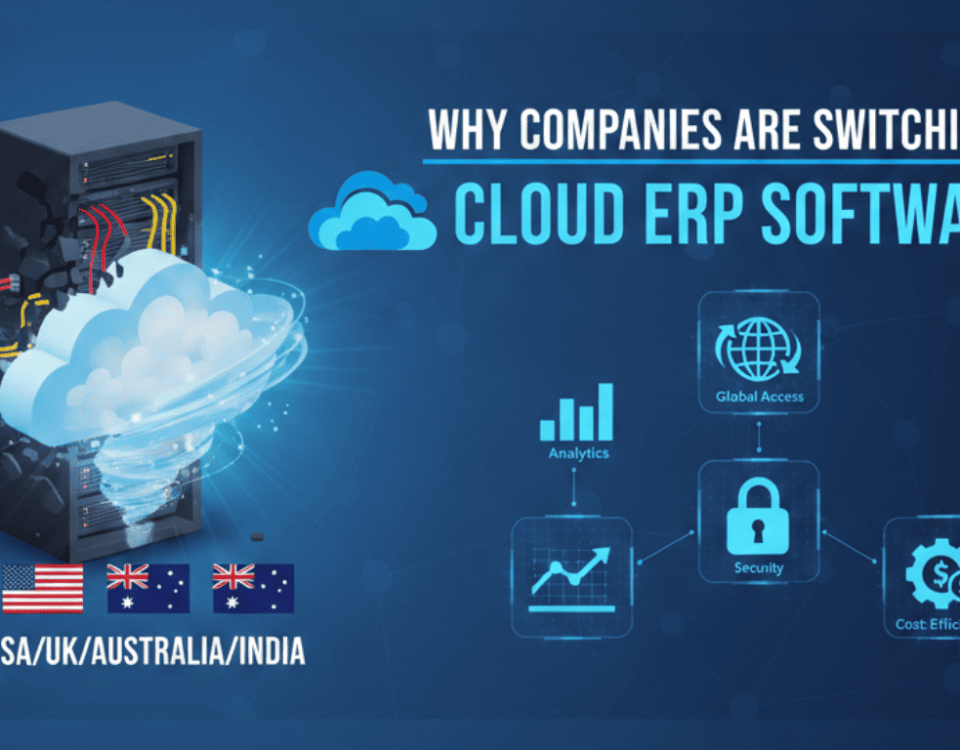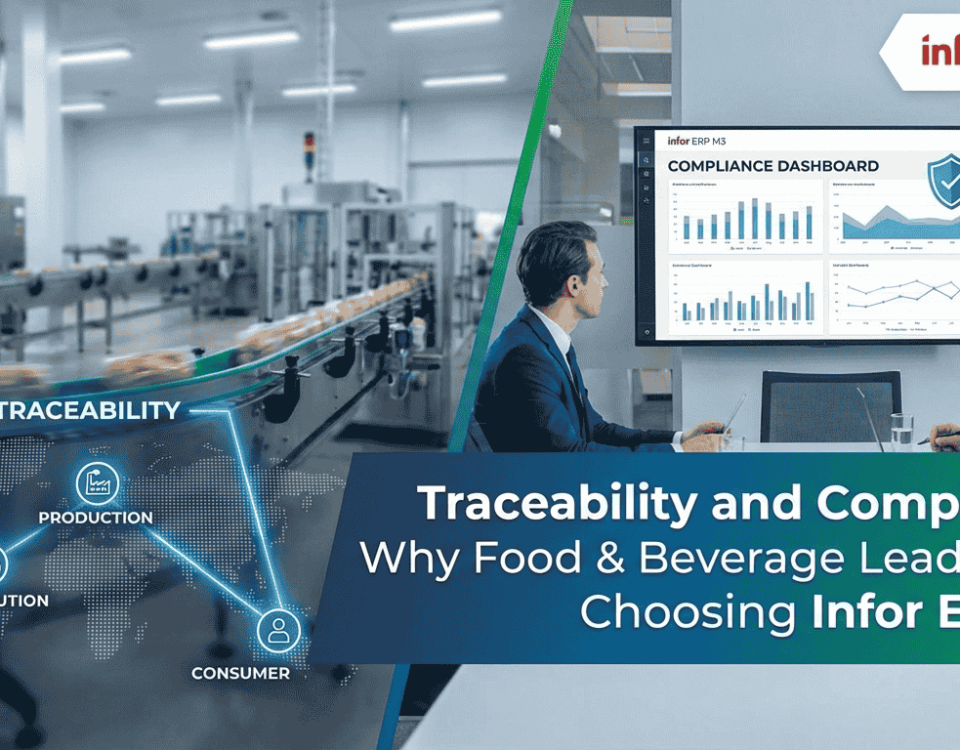
How Singaporean Manufacturing Firms Use ERP to Optimize Smart Factory Initiatives
April 22, 2025
Why German Automotive Manufacturers Rely on ERP for Industry 4.0 Standards
May 13, 2025Why UK-Based Manufacturers Need ERP for Tariff & Trade Compliance
UK manufacturing companies face complex global trade rules. Tariffs and trade regulations change often. It is very difficult for manufacturing companies in the UK to remain compliant. ERP or Enterprise Resource Planning software for manufacturing can help them. ERP is complete software for UK manufacturers having tools for tariff and trade compliance. This blog explains why ERP is essential. It will help UK manufacturers navigate these challenges.The Growing Importance of Trade Compliance for UK Manufacturers
Global trade is imperative in the livelihoods of factories in the UK. They source materials and sell products worldwide. However, international trade comes with rules. These rules include tariffs, duties, and trade agreements. Tariff compliance software helps manage these. There can be dire consequences as far as non-compliance is concerned, from heavy fines and time in prison to even tarnishing a good name. There are therefore critical trade compliance obligations for manufacturers in America. ERP for trade compliance offers a solution. It integrates various business processes. This integration provides a clear view of the supply chain. It helps track goods and calculate duties accurately. ERP for manufacturing industry ensures that manufacturing companies in UK follow all the rules.What is ERP and How Does It Help Manufacturers?
Enterprise Resource Planning (ERP) is basically the software that helps businesses to manage their core operations such as accounting, procurement and supply chain. Moreover, ERP also help with project management, risk management and compliance.For manufacturing companies in uk, ERP helps in:
- Supply Chain Management: Tracking raw materials and finished goods.
- Inventory Management: Knowing stock levels and locations.
- Production Planning: Sustaining manufacturing operations.
- Finance: Handling accounting and financial reporting.
- Sales and Distribution: Managing orders and deliveries.
ERP software for manufacturing integrates these functions. This gives American manufacturing companies a single platform. All departments can access the same information. This improves efficiency and decision-making. For tariff and trade compliance, this integrated view is very important. It allows companies to track the origin and destination of goods. This is crucial for calculating the correct tariffs and duties.
The Challenges of Tariff and Trade Compliance without ERP
Managing tariffs and ensuring efficient trade is particularly burdensome without an integrated ERP software. Manufacturing companies in UK often rely on manual processes. These processes are prone to errors. Spreadsheets and separate systems make it hard to keep track of changing regulations.- Manual Data Entry: Increasing faults and discrepancies in various customs declarations.
- Lack of Visibility: Locating and following goods is challenging.
- Keeping Up with Changes: There are significant changes in trade laws, and tariffs keep on altering, in frequency, making them difficult for manual tracking, at best.
- Communication Gaps: Various departments might hold inconsistent details.
These challenges can lead to significant costs and risks for UK manufacturing companies. Delays at customs can disrupt the supply chain. Incorrect tariff classifications can result in penalties. This is where ERP for UK manufacturers becomes a vital tool.
Benefits of ERP for UK Trade Compliance
Implementing ERP for trade compliance offers many benefits for manufacturing companies in uk.- Improved Accuracy: ERP systems automate data entry and calculations. This reduces the risk of errors in tariff declarations. Tariff compliance software ensures accuracy.
- Enhanced Visibility: Supply chain visibility is a foremost accomplishment of ERP systems. It is so observant regulatory system that evaluates the authenticity of inputs and outputs. This helps in determining applicable tariffs and regulations.
- Real-Time Updates: ERP systems can be updated with the latest trade regulations and tariff changes. This ensures that manufacturing companies in uk are always compliant.
- Better Communication: An integrated ERP system enables all relevant departments to have access to the same information. This results in best collaboration and less inconsistency.
- Improved Decision-Making: An ERP system helps in taking improved decisions.
Popular ERP Manufacturers and Their Solutions
Several ERP manufacturers are able to offer viable solutions for the manufacturing industry. These solutions help with various aspects, including trade compliance.- Infor ERP: Infor ERP system includes features for managing global trade and compliance. Infor ERP software helps businesses navigate complex international regulations.
- SAP S/4HANA: SAP offers a comprehensive ERP system with robust trade compliance functionalities.
- Microsoft Dynamics 365: It includes significant modules for supply chain management and finance management to tackle trade compliance issues.
Why is Trade Compliance important for UK Manufacturers?
Trade compliance is not just about avoiding penalties. It is a crucial aspect of running a successful and sustainable manufacturing business in the UK.- Legal Requirements: It is a must to adhere to trade laws. Not adhering the same will lead to financial punishment, legalities, and a ruined name.
- Financial Implications: Tariffs and duties can significantly impact the cost of goods.
- Supply Chain Efficiency: Production delays and displeased clients are some of the ways the supply chain could be seriously affected. The reason behind can be the backlog at the customs resulting from non-compliance.
- Global Competitiveness: Companies that effectively manage trade compliance can operate more efficiently in the global market. They can leverage international sourcing and sales opportunities while minimizing risks.
- Reputation and Trust: Compliance with regulations builds trust with customers, suppliers, and regulatory authorities. This can increase the company's value and permanent success.
Implementing ERP for Tariff and Trade Compliance
Getting a Tariff and trade compliance is an act of implementing an ERP system, which requires a dozen or more steps.- Assessment of Needs: For tariff and trade compliance, assessing the needs is necessary.
- Selection of ERP System: Select an ERP system with the requirements imposed for trade compliance, which encompasses tariff management, customs documentation, and compliance reporting. ERP vendors like Infor global solutions ERP provide such solutions.
- Data Migration: Shift existing data from legacy systems to the new ERP system. Make sure data should be correct and complete.
- System Configuration: Incorporate appropriate modules within an enterprise resource planning platform to suit business requirements.
- Training: In-depth training sessions are necessary for trading compliance tasks.
- Testing: Thoroughly test the system to ensure it functions correctly and meets all requirements.
- Deployment: Implement the ERP software in your manufacturing firm.
- Ongoing Maintenance and Updates: Regularly maintain & update the ERP system in line with the changing regulations that come in post changing business activities and concurrently maintain efficient performance.
This process requires careful planning and execution. However, the long-term benefits of improved trade compliance and efficiency make it a worthwhile investment for UK manufacturing companies.
The Future of ERP and Trade Compliance
The landscape of global trade is constantly evolving. New trade agreements, tariffs, and regulations emerge frequently. ERP systems are also evolving to meet these challenges. Future trends in ERP for trade compliance include:- Advanced Analytics: Using data analytics to gain insights into trade patterns and optimize compliance strategies.
- Integration with Regulatory Bodies: Seamless exchange of data with customs authorities and other regulatory agencies.
ERP software for manufacturing will continue to evolve its capabilities in supporting tariff and trade compliance for manufacturers in the United kingdom.
Conclusion
In today's global economy, tariff and trade compliance is a critical concern for UK manufacturing companies. The complexities of international trade require robust solutions. ERP offers the necessary tools for UK manufacturers. Major features of ERP in manufacturing industry would be the integration of business processes, visibility, and automation of compliance processes from which accuracy will be increased and cost reduced to enable improved decision-making.Choosing the right ERP system from reputable ERP manufacturers like Infor ERP is a strategic investment. It helps manufacturing companies in uk stay compliant with evolving trade regulations. Trade compliance within ERP ensures UK manufacturers a way forward for long-term survival in an increasingly competitive global marketplace.



